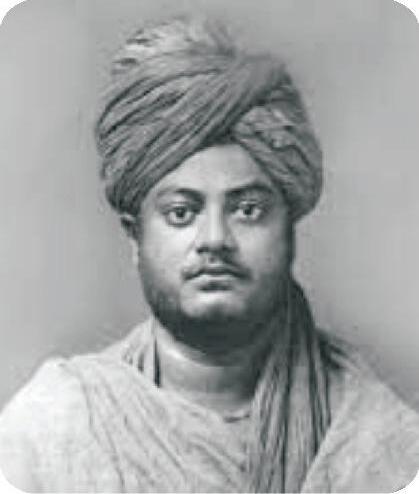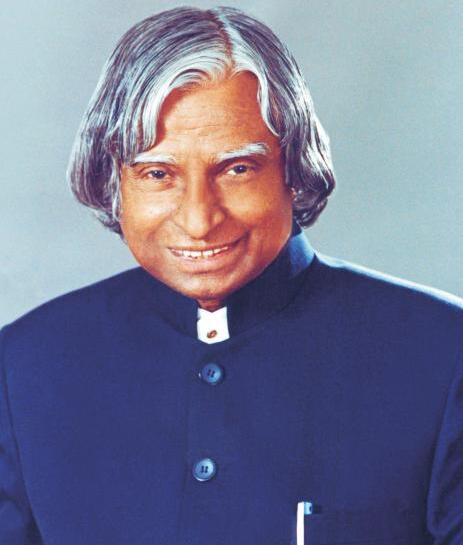
3 minute read
Let's LEARN!
Let's LEARN https://www.youtube.com/c/LetsLEARN2016 ÿ Aristotle/vjLrw dk opu (Quote) dksbZ Hkh fdlh Hkh le; ukjkt gks ldrk gSA blesa dksbZ fnDdr ugha gSA vFkZ gS fd ge vius Emotion dks Control dj ik, vkSj lgh txg ij] lgh le; ij] lgh rjhds ls] lgh ek=kk esa use dj ik, blh dks Emotional Intelligence dgrs gSaA ÿ Emotional Intelligence dh fo'ks"krk,¡
Anybody can become angry, that is easy; but to be angry with the right person, and to the right degree, and at the right time, and for the right purpose, and in the right way, that is not within everybody's power, that is not easy.” —Aristotle.
Advertisement
(i) Social Skills (lkekftd dkS'ky)
(ii) Self-Awareness (vkRe tkx#drk)
(iii) Motivation (vfHkizsj.kk)
(iv) Empathy (lekuqHkwfr) (To put yourself in somebody's shoes)
(v) Self-Regulation (Lo fu;a=k.k)
Cognition and Emotion (laKku ,oa laosx) ÿ Bi-directional (f}&fn'kkRed) gksrs gSa o Interrelated (var% lacaf/r gksrs gSaA) ÿ nksuksa ,d&nwljs dks izHkkfor djrs gSaA fliZQ ,d case esa izHkkfor ugha djrs gSaA (Zajonc ttksd ds) ÿ Zajonc ds vuqlkj Emotion and Cognition, Independent (Lora=k) gSA ÿ euksoSKkfudksa }kjk ;g lq>ko fn;k x;k gS fd f'k{kdksa ds n`f"Vdks.k ls Giftedness dh Hkkouk fuEufyf[kr ds la;kstu ij fuHkZj djrh gSA
Let's LEARN https://www.youtube.com/c/LetsLEARN2016 cgq&cqf¼ dk fl¼kar (Theory of Multiple Intelligence) ÿ Multiple Intelligence is also known as a multiple dimensional intelligence. ÿ “Howard Gardner” us cgq cqf¼ dk fl¼kar fn;kA ÿ 8 Types (Verified by NCERT). ÿ Each of these intelligence are Lora=k@independent of each other. ÿ Intelligence is not a single entity (cqf¼ dbZ izdkj dh gksrh gS] ;g dksbZ ,d {kerk ugha gSA) ÿ So, teacher can teach in multiple ways. vFkkZr~ vf/xe Hkh dbZ izdkj ls gks ldrk gSA
1. Linguistic, Intelligence (Hkk"kkbZ cqf¼) ÿ Skills involved in the production and use of language. ÿ Person high on this intelligence are “Word-Smart”. ÿ Reading, Hearing, Speaking, Writing, Debating (okn&fookn)] Discussion ÿ Rabindra Nath Tagore, Swami Vivekananda (e.g. poets, writers)
2. Logical Mathematical (rdZiw.kZ cqf¼) ÿ Skills in scientific thinking and problem solving. ÿ Persons high on this type of intelligence can think logically and critically ÿ Scientists and Nobel Prize winners are likely to be strong in this component. ÿ Albert Einstein, A.P.J. Abdul Kalam.

3. Spatial Intelligence (LFkkfud cqf¼) ÿ Skills in forming visual images and patterns. ÿ Sailors (ukfod)] Sculptors (ewfrZdkj)] Painters,Architects (okLrqd)] Interior decorators (vkarfjd lTtkdkj)] Cartographers (ekufp=kdkj)] Pilots, Surgeons etc.

4. Musical Intelligence (laxhfr cqf¼) ÿ Sensitivity to musical rhythms and patterns. ÿ It is the capacity to produce (mRikn)] create (l`tu djuk) and manipulate (ifjorZu djuk) musical patterns esa e.g. (A.R. Rehman, Sonu Nigam, Lata Mangeshkar)

Let's LEARN https://www.youtube.com/c/LetsLEARN2016
5. Bodily-Kinaesthetic ÿ Using whole or portions of the body flexibly and creatively. ÿ Athletes, dancers, actors, sportspersons, gymnasts and surgeons are likely to have such kind of intelligence, Pilots
Note: Surgeons and Pilots common gS blfy, T;knk egRo bls Spatial esa nsaA
6. Interpersonal (varoSZ;fDrd cqf¼) ÿ Sensitivity to subtle aspects of other’s behaviours. (nwljksa ds O;ogkj o Hkkoukvksa dks le>uk) ÿ Psychologists, counsellors, politicians, social workers and religious leaders are likely to possess high interpersonal intelligence. e.g. M. Gandhi, Mother Teresa.

7. Intrapersonal (var%oS;fDrd cqf¼) ÿ Awareness of one’s own feelings, motives, human existence and meaning of life, desires. ÿ Persons high on this ability have finer sensibilities regarding their identity, human existence and meaning of life. ÿ Sandeep Maheshwari, Aristotle, Sadhguru, Philosophers, Buddha

8. Naturalistic (izkÑfrd cqf¼) ÿ Sensitivity to the features of the Natural World. ÿ Hunters, farmers, tourists, botanists, zoologists and bird watchers possess more of naturalistic intelligence.

Let's LEARN https://www.youtube.com/c/LetsLEARN2016 f=k&cqf¼ fl¼kar (Triarchic Theory of Intelligence) ÿ William Sternberg ds }kjk ^^f=k&cqf¼ fl¼kar** dk izfriknu fd;k x;kA ÿ P C A Practical Creative Analytical
Componential (fo'kys"k.kkRed) ÿ Think abstractly and process information effectively Experiential (jpukRed) ÿ Formulate new ideas, to combine seemingly unrelated facts. Contextual (izk;kSfxd) ÿ Shape the environment to maximize one’s strength and compensate one’s weakness. (Street Smarts)
Louis Thurstone- SPNV-WMR (Trick) ÿ PMA = 7-Primary Mental Ability
– Group factor theory.
The Seven factors (7) are independent of each other
S = Spatial Ability (LFkkfud {kerk)
P = Perceptual Ability (vo/kj.kkRed {kerk)
N = Numerical Ability (la[;kRed {kerk)
V = Verbal Comprehension (Hkk"kk le>us ls lacaf/r)
W = Word fluency (Hkk"kk cksyus ls lacaf/r)
M = Memory (Le`fr)
R = Reasoning (rdZ'kfDr)
Let's LEARN https://www.youtube.com/c/LetsLEARN2016
I;kts dk laKkukRed fl¼kar (Piaget’s Cognitive Theory) ÿ Cognitive Development (laKkukRed fodkl) ÿ Intellectual Development (ckSf¼d fodkl) ÿ Piaget was a Swiss psychologist. ÿ bUgksaus cPpksa dks lfØ; fuekZrk (Active Constructor), dgk gSA ÿ Active Constructor / Builder of knowledge. (Kku ds lfØ; fuekZrk) ÿ cPps uUgsa oSKkfud (Little Scientist) gSA ÿ Schema = Mental Structures. (Existing / Previous knowledge) ÿ cPps Activity }kjk vius laKku dk fuekZ.k tkjh j[krs gSaA ÿ I;kts jpukoknh (Radical Constructivist) gSA ÿ I;kts dk fl¼kar gesa crkrk gS fd cPpk ,d ekufld @ laKkukRed lajpuk ds lkFk iSnk gqvk gS] tks 14 ;k 15 lky dh mez esa vf/dre fodkl izkIr djrk gSA ÿ I;kts us laKkukRed @ ckSf¼d fodkl dks 4 Stages esa ck¡Vk gSA ÿ Collective Monologue (lkewfgd ,dkyki) fn;kA (3&5 o"kZ) ÿ I;kts ds vuqlkj fodkl ,d vlrr~ izfØ;k gS (Development is Discontinuous)
4 Elements (MESE)
1. M—Maturation (ifjiDork) @ Genetics / Heredity
2. E—Experience (vuqHko) @ Activity
3. S—Social Interaction (lkekftd var%fØ;k)
4. E—Equilibration (larqyu)
Process of Equilibration (larqyu)
Let's LEARN
Assimilation (vkRelkr)
Equilibration (larqyu)
Adaptation (vuqowQyu)
Organisation (laxBu)
Accommodation (lek;kstu)







